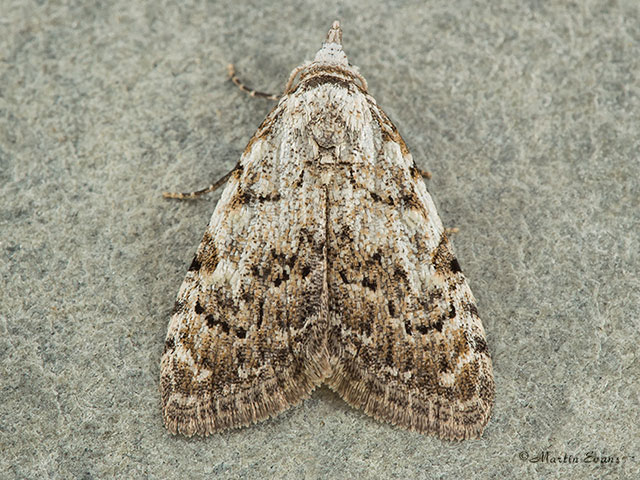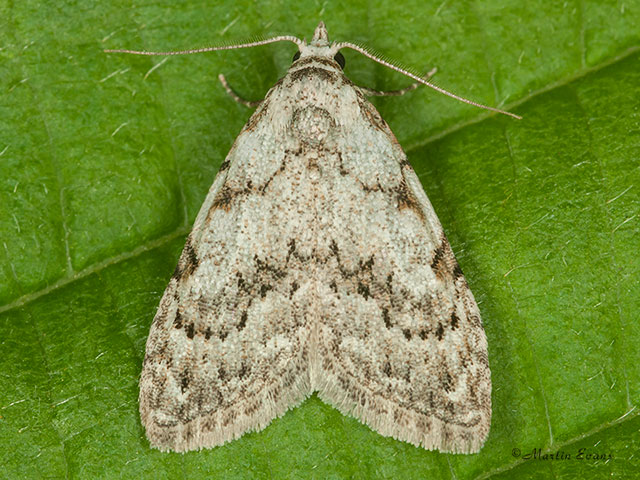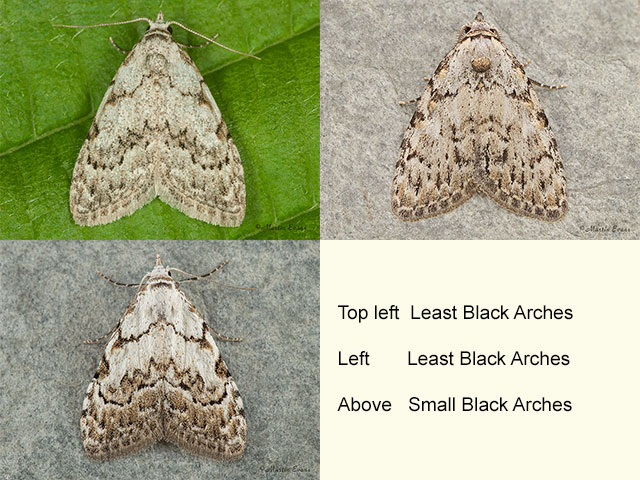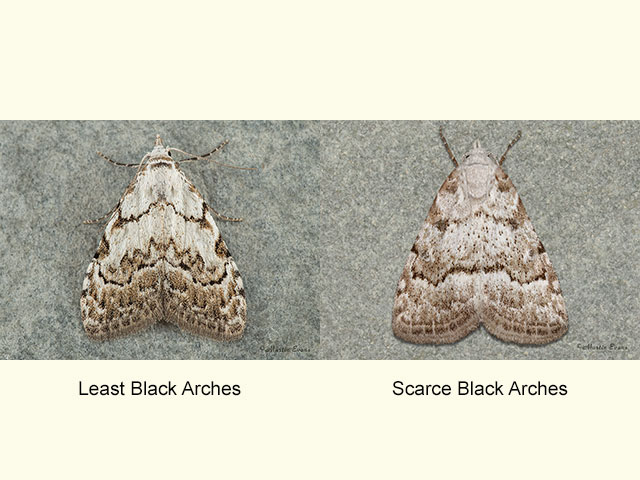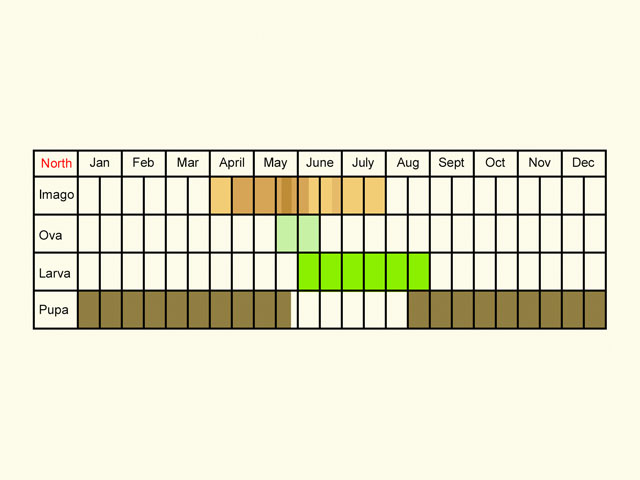Nolidae
74.004 Least Black Arches Nola confusalis (Herrich-Schäffer, 1847)
Local
Similar species: Small Black Arches Meganola strigula has a grey-orange rather than white crest on the thorax. The inner central cross-line has an outward "V" shape just before it reaches the trailing edge. British specimens tend to have a pale forewing with an obscure outer central cross-line and paler outer wing with the inner side of the outer cross-line represent by dashes. On mainland Europe Small Black Arches is darker and more similar in markings to Least Black Arches. This is the case with some British specimens. Scarce Black Arches Nola aerugula is smaller (8 to 9mm) and has less prominent crosslines. The outer central crossline is less rounded, the central crossline is obscure without prominent zig-zags and the moth lacks the bar across the thorax.
Forewing: 9 to 11mm
Habitats: Deciduous woodland, parkland, scrub, hedgerows, orchards and gardens
Habits: The moth comes to light.
Foodplant: The larva feeds on Pedunculate Oak, Evergreen Oak, limes, Downy Birch, apples, Blackthorn, Beech, Purging Buckthorn and other deciduous trees and shrubs. It pupates in a cocoon attached to a twig of the foodplant.
On the European mainland it has also been recorded feeding on Hornbeam, Alder and Hawthorn.
